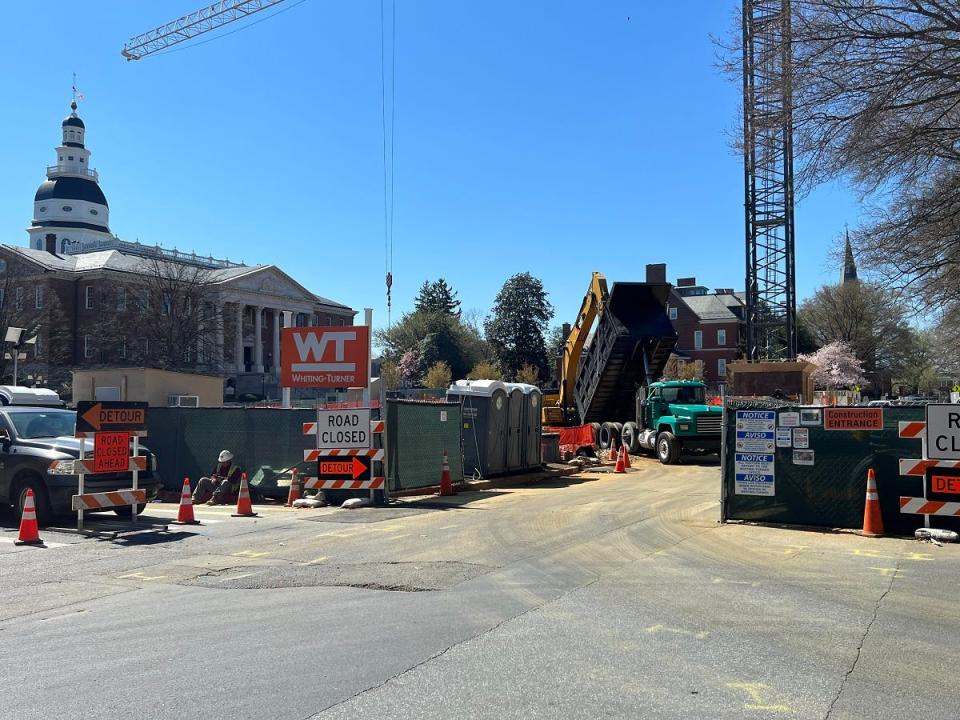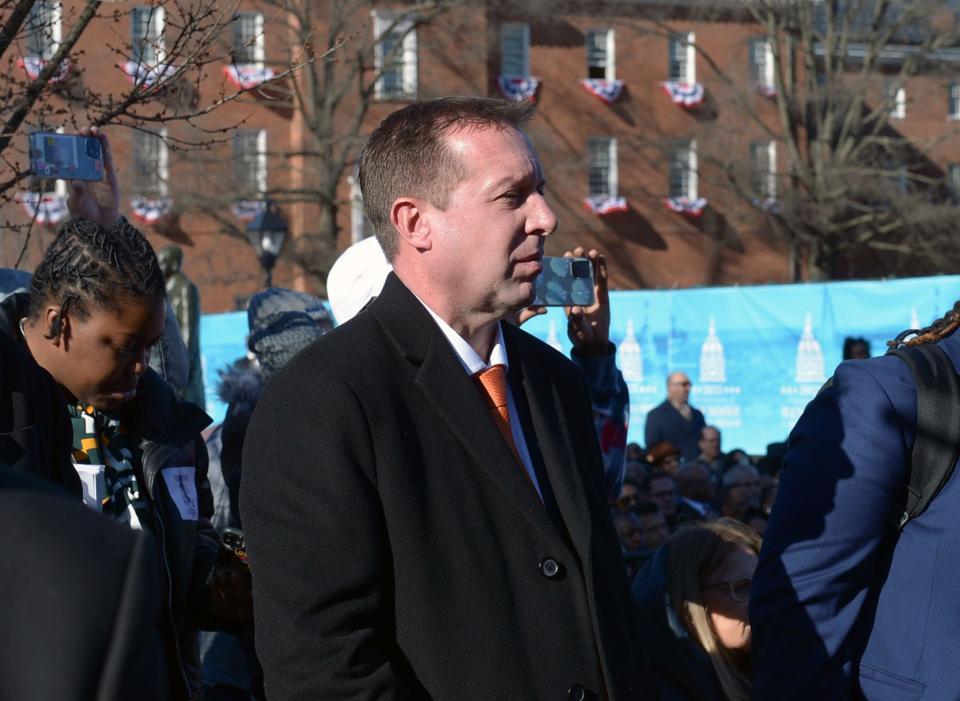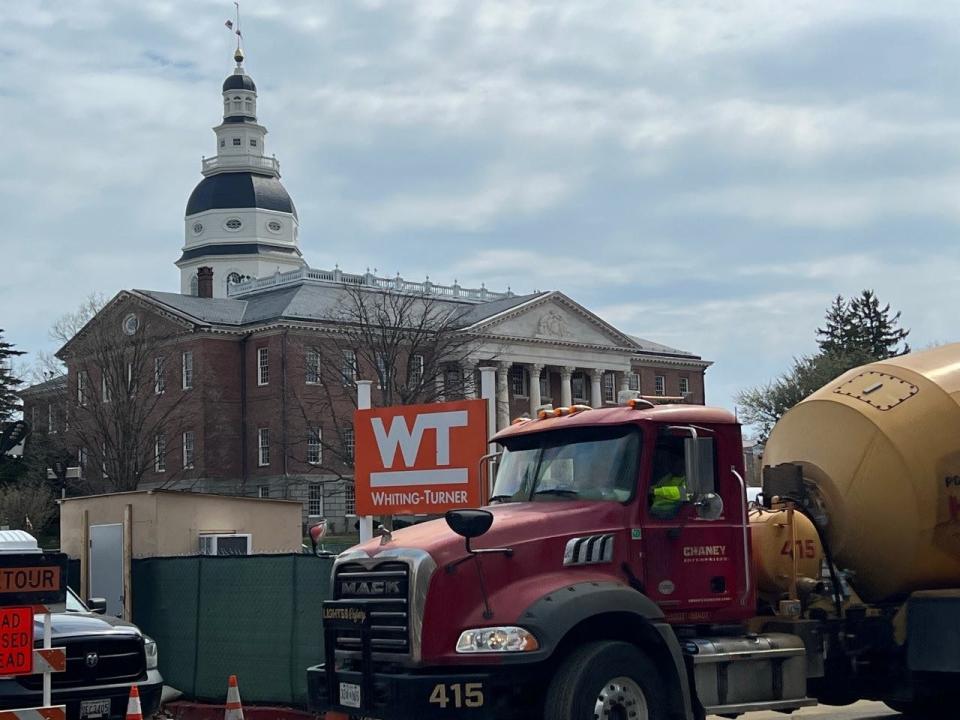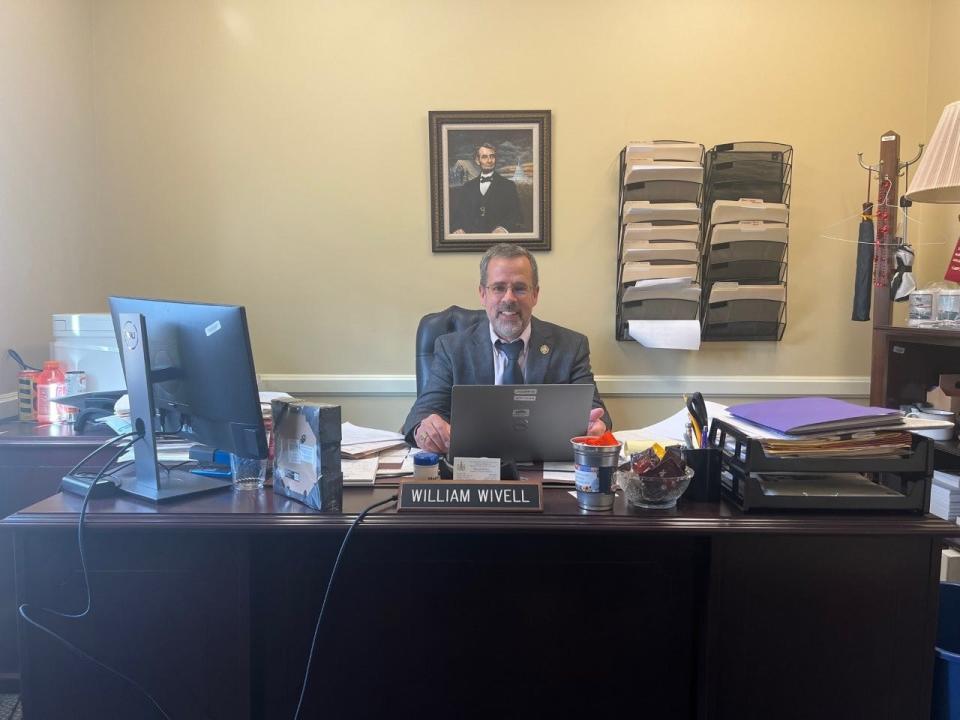Maryland Clean Trucks legislation moves forward, but still a long road to reduce emissions
This month, Democratic Gov. Wes Moore announced his intention to lead the state into a cleaner car future by requiring all new passenger car and light truck sales in model year 2035 to be electric vehicles. The announcement mirrored a California law that Maryland had agreed to, in principle, over a decade earlier.
Now, state legislators are looking to pave the road ahead towards electric trucks, and at least one Maryland manufacturer of electric truck parts is looking to get in on the official conversation. Sen. Malcolm Augustine, D-Prince George’s, presented his Clean Trucks Act of 2023 before the House Environment and Transportation Committee on Wednesday
“This is only clarifying a law that already exists,” said Committee Chair Del. Kumar Barve, D-Montgomery, a veteran legislator who has been a member of the General Assembly since 1991, long before Maryland adopted legislation implementing California’s vehicle emission standards in 2007.
What does the Clean Trucks Act do?

The senator’s bill increases grants for qualified medium-duty or heavy-duty zero emissions trucks, adopts portions of California’s rule that would mandate 40 to 75 percent of those vehicles made be zero-emissions by 2035, and requires the Maryland Department of Environment to submit a needs assessment and deployment plan to the General Assembly on or before Dec. 1 of next year.
Augustine, a member of Maryland Legislative Transit Caucus, drove home to the delegates three distinct parts of the study related to the feasibility of accomplishing the transition to electric. They included:
“Ensuring that our electric grid is able to handle the increased load;”
“Assessing for charging and hydrogen refueling stations that will be required for the implementation;”
“And ensuring purchase incentives to make adoption financially feasible for truck owners.”
The International Council on Clean Transportation estimated that “a 2022 battery electric truck to cost two to three times it’s diesel counterpart before incentives,” coming in around $400,000 to $510,000 per semi-truck.
More: As Moore administration races ahead with clean cars, state far behind goal
More: Electric vehicles doubled in Maryland in two years, but total falls short of state goal
The Maryland Department of Transportation State Highway Administration alone has 1,600 medium- and heavy-duty pieces of equipment and commercial-class vehicles. A medium-duty vehicle has a gross weight between 8,501 and 14,000 pounds while a heavy-duty vehicle exceeds that threshold. A Ford F150 pickup, by comparison, weighs around 5,000 pounds.
About a fourth of greenhouse gas emissions in the transportation sector comes from medium-and-heavy duty trucks. Over half of vehicle emissions (57%) comes from light-duty vehicles, according to the United States Environmental Protection Agency.
Maryland pledged last year in the Climate Solutions Now Act to reduce greenhouse gas emissions by 60% by 2031 from 2006 levels.
Washington County delegation wants more members on state’s EV council

A state group has been leading the charge towards electric vehicles in Maryland for over a decade. The Zero Emission Electric Vehicle Infrastructure Council is tasked with facilitating the transition to electric vehicles, including creating a charging infrastructure plan for the state.
The now 25-plus member council might have more members if a bill backed by the Washington County Delegation becomes law. The legislation adds a heavy-duty vehicle manufacturer to the council.
“Volvo came to us,” said Sen. Paul Corderman, R-Washington/Frederick, in an interview during a break in a budget conference committee meeting on March 28, explaining the reason for the bill he backs. The company operates a 1.5 million-square-foot factory, originally built in 1961, on Pennsylvania Avenue in Hagerstown, a location that President Joe Biden toured last October.
More: President Biden lays out 'middle class' economic vision at Hagerstown Volvo factory
The facility is the only site in North America where the company manufactures modular power boxes for electric trucks.

During a hearing of the Senate Education, Energy, and the Environment Committee on March 30, Corderman said the facility employs nearly 2,000 people and is the last major automotive manufacturer in the state.
“If we as a body move forward with the goal of zero-emissions, it’s important to have a voice from some of our industry leaders within this council to further those efforts to reach those goals,” he said. An amendment to the bill would also include representation on the council from the Department of General Services, which might have a role with some of the state's charging infrastructure.
The council is scheduled to meet a total of seven times in 2023. Currently, the only representation on the council from a manufacturer of electric vehicles is a consultant from Tesla.
What the Washington County Delegation chair said about the bill

Del. William Wivell, R-Washington/Frederick, called the proposed legislation a “fairly simple bill” during a March 29 interview in his office.
“It would just give a large truck manufacturer a seat at the table,” said Wivell, the chair of the Washington County delegation. He noted Volvo’s efforts towards electric vehicle technologies.
On the whole, the Volvo Group has invested nearly $320 million in the Hagerstown site during the past 10 years.
Representatives from Volvo did not respond to requests for comment.
Barve, the Environment and Transportation Committee chair, said the manufacturer from Western Maryland supported the bill during a House floor debate on March 31.
FORD'S BIG ENTRY: Ford F-150 Lightning price climbs – again – as production resumes following battery fire
The Clean Trucks Act advanced on the House floor on Friday after four amendments from Republican delegates failed. A few Republicans expressed concern about child labor practices in places overseas where minerals used in electric vehicle batteries are sourced.
The bill brought by the Washington County Delegation was not introduced until late February and has not passed either chamber as of March 31. The last day of the 2023 legislative session is scheduled for Monday, April 10.
Dwight A. Weingarten is an investigative reporter, covering the Maryland State House and state issues. He can be reached at dweingarten@gannett.com or on Twitter at @DwightWeingart2.
This article originally appeared on The Herald-Mail: Clean Trucks legislation moves forward, long road to reduce emissions

